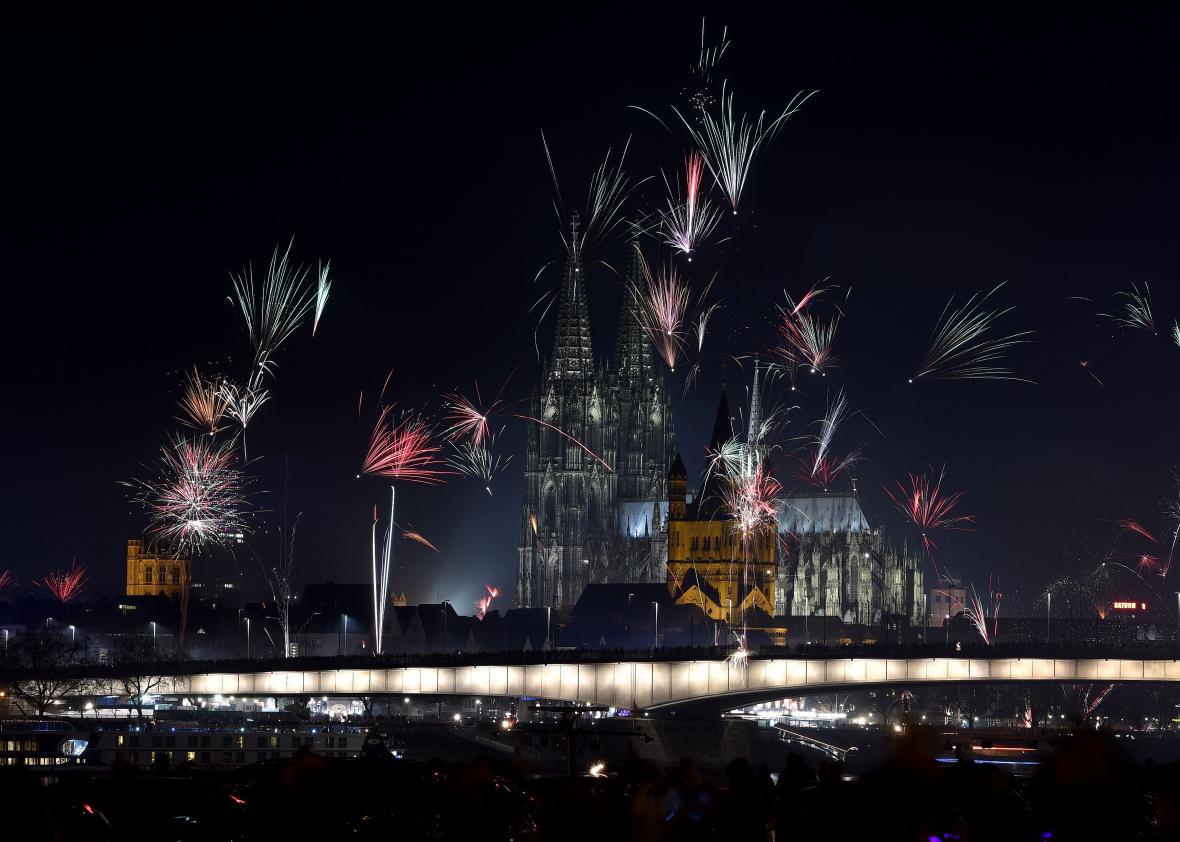German police are searching for up to 1,000 young men who robbed and sexually assaulted women in organized groups during a public New Year’s Eve celebration in Cologne. Some of the nearly 100 victims who’ve filed criminal reports so far have described the perpetrators as “Arab-looking men” and “foreign-looking men,” leading some German politicians to use the systematized attack to push an anti-immigrant agenda.
According to reports, the men appeared to be between 18 and 35 years of age, roaming the central train station and the public square outside the Cologne Cathedral in groups of 20 to 30. After setting off firecrackers and fireworks into the crowd to cause a diversion, the groups allegedly surrounded women, including one plainclothes police officer, and assaulted them. At least one woman reported that they raped her.
“It was horrible,” a 28-year-old victim identified as Katja L. said of being groped by the mob. “Although we screamed and flailed about, the guys didn’t stop. I was beside myself and think that I was touched about 100 times across around 200 meters.” Police told the Cologne Express paper that one of the first women who reported an assault had had “her underwear…torn from her body.” The city’s police chief, Wolfgang Albers, called the rash of assaults “a completely new dimension of crime” and said he predicts that more women will file reports in coming days. Hamburg police reported 10 similar attacks against women on New Year’s Eve.
Albers also confirmed that the perpetrators, “from appearance, were largely from the north African or Arab world.” German politicians from multiple parties have begun to blame the attacks on the more than 1 million refugees who fled to Germany last year, many of which came from Syria, though police say many of the suspects were known pickpocketers and muggers from the train station, not recent arrivals. “It can’t go on like this! Urgently needed: reduction of influx, secure borders, intensifying of deportations and meaningful justice,” tweeted MP Steffan Bilger of Chancellor Angela Merkel’s Christian Democratic Union. (Merkel, for her part, called on Germans to accept refugees in “solidarity” during her New Year’s address.) “Here we see the appalling consequences of catastrophic asylum and migration policies on Germany’s everyday reality,” Frauke Petry, a leader of the right-wing Alternative for Germany party, said.
Some have accused the media and German police of covering up the nature of the assaults by failing to immediately release the suspects’ physical descriptions. Cologne is known in Germany for its relative diversity, and mayor Henriette Reker has expressed a welcoming stance toward refugees. A knife-wielding man with connections to neo-Nazi groups stabbed Reker in the neck over her refugee policies in a attack just before election day last October. “This is not about where someone is from but what they did,” Justice Minister Heiko Maas said of the Cologne attacks, which he identified as a possible new form of organized crime. “Making this an issue by oversimplifications and connecting it to the refugee issue is nothing but a misuse of the discussion.”
Reker gathered police leaders for an emergency meeting on Tuesday, and says they are devising plans to increase safety measures—security cameras, more lighting—for next month’s annual Cologne Carnival, whose “crazy days” draw hundreds of thousands to the city for wild parties. “We will also have to explain our Carnival better to people from other cultures,” Reker said, “so that there’s no confusion about the cheerful behavior in Cologne.”
